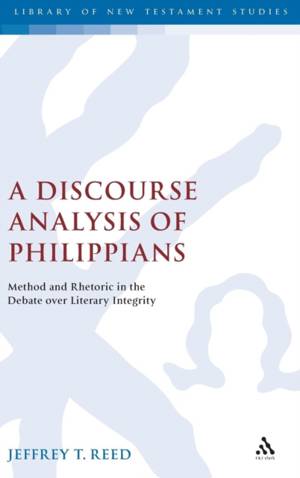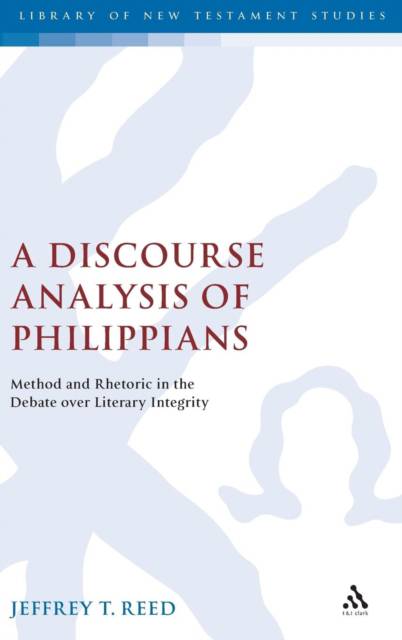
- Afhalen na 1 uur in een winkel met voorraad
- Gratis thuislevering in België vanaf € 30
- Ruim aanbod met 7 miljoen producten
- Afhalen na 1 uur in een winkel met voorraad
- Gratis thuislevering in België vanaf € 30
- Ruim aanbod met 7 miljoen producten
Zoeken
A Discourse Analysis of Philippians
Method and Rhetoric in the Debate over Literary Integrity
Jeffrey T Reed
€ 373,45
+ 746 punten
Omschrijving
This large-scale work is the application of modern theories of discourse analysis to questions of Greek grammar, especially with respect to the debate over the literary integrity of Philippians. Chapter 1 introduces the linguistic theory of discourse analysis, defining key terms, sketching its historical evolution and outlining its major tenets. Chapter 2 sets forth a model of discourse analysis primarily based on the systemic functional theories of M.A.K. Halliday. Chapter 3 outlines the historical-critical debate over the literary integrity of Philippians. Chapter 4 inspects the genre of Philippians, challenging rhetorical approaches to the text and proposing instead an epistolary classification, viz. 'personal, hortatory letter'. Chapter 5 focuses on the discourse structure of the letter, investigating its use of ideational, interpersonal and textual functions of Hellenistic Greek. In chapter 6, relevant issues of biblical hermeneutics are addressed.
Specificaties
Betrokkenen
- Auteur(s):
- Uitgeverij:
Inhoud
- Aantal bladzijden:
- 525
- Taal:
- Engels
- Reeks:
- Reeksnummer:
- nr. 136
Eigenschappen
- Productcode (EAN):
- 9781850756385
- Verschijningsdatum:
- 1/02/1997
- Uitvoering:
- Hardcover
- Formaat:
- Genaaid
- Afmetingen:
- 156 mm x 234 mm
- Gewicht:
- 911 g

Alleen bij Standaard Boekhandel
+ 746 punten op je klantenkaart van Standaard Boekhandel
Beoordelingen
We publiceren alleen reviews die voldoen aan de voorwaarden voor reviews. Bekijk onze voorwaarden voor reviews.








